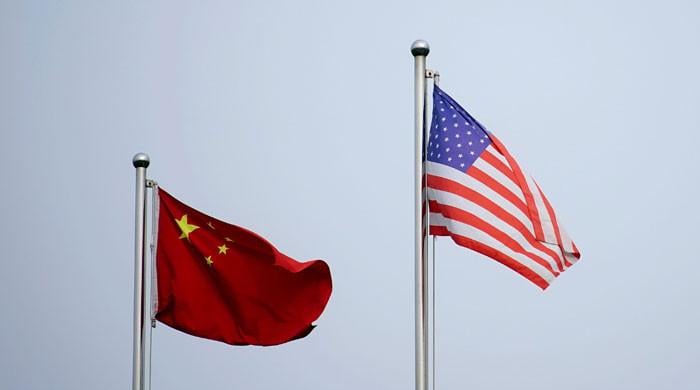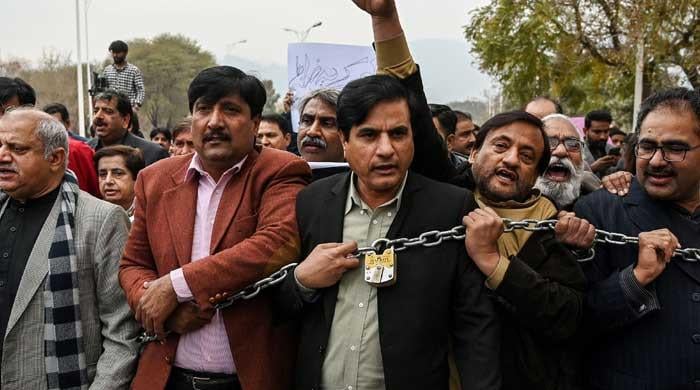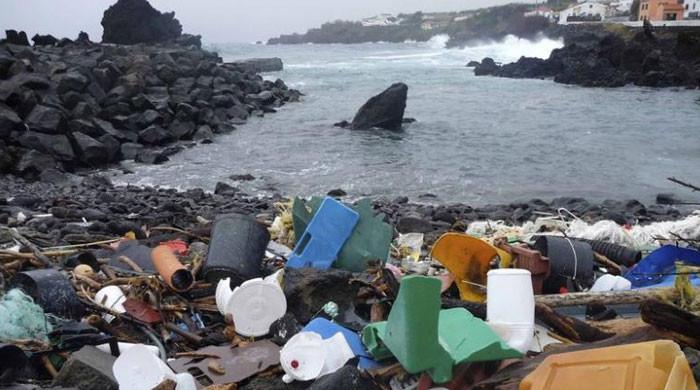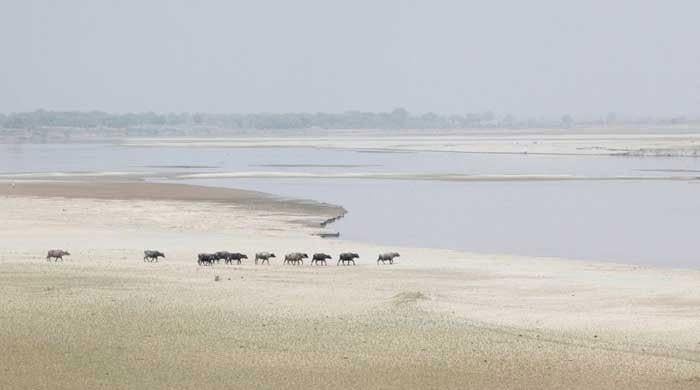Unappreciation vs appreciation of Pakistan
Small expressions of appreciation towards Pakistan are important, but they are not enough in light of a wider blame game to prevent its alienation and sense of disillusionment
October 05, 2021
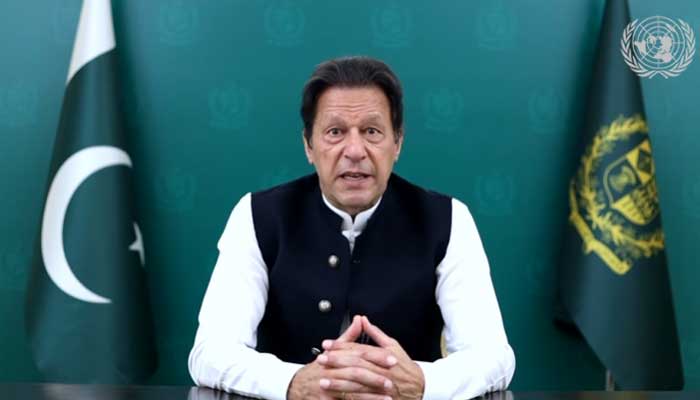
The expression of appreciation by one prime minister to another would not usually be something to write home about. But the criticism of Pakistan by the US in relation to Afghanistan, and the anti-Pakistan sentiment that has been an issue in a number of Western countries since initial migration meant that British Prime Minister Boris Johnson’s recent appreciation of Prime Minister Imran Khan stood out as significant.
However, countries must bear in mind that the blame game, that Pakistan characterizes as scapegoating, will only alienate Pakistan.
Prime Minister Imran Khan’s recent appearances on the international stage and media have, naturally, been focused on Afghanistan. The blame placed on Pakistan by the US, in particular, was a central issue to his op-ed in The Washington Post, his address to the UN general debate and his interview with BBC’s John Simpson.
Khan, in his address to the UN, expressed the upset felt by Pakistan for the lack of appreciation shown by the US for the role they had played in Afghanistan and also in the so-called “War on Terror.” In terms of the casualties incurred by Pakistan, Khan’s suggestion that Pakistan had suffered most after Afghanistan is certainly a fair assessment.
As pointed out in his op-ed for The Washington Post, not all of the harm inflicted upon Pakistan was by its enemies.
Khan suggested that the US was responsible for “over 450 drone strikes” on Pakistani territory, making Pakistan “the only country in history to be so bombed by an ally. These strikes caused immense civilian casualties, riling up anti-American (and anti-Pakistan army) sentiment further.”
The Bureau of Investigative Journalism, which collates reports to hold the powers that be to account, has gathered data on drone strikes by the US in Pakistan. Between June 2004 and now, the Bureau states that there has been a minimum of 430 confirmed strikes with a maximum of 4,026 total deaths, almost a quarter of which are potentially civilians.
Some may justify these deaths as collateral damage, or a “necessary evil,” for the “greater good.” But surely the accident of birth cannot be grounds enough to justify the death of an innocent Pakistani? Would the authorities in the US so readily cause the death of American civilians on its own soil as a side-effect of targeting militants?
Prime Minister Imran Khan cited Asif Ali Zardari, a former president of Pakistan, in his op-ed as saying “collateral damage worries you Americans. It does not worry me.” This is also quoted by a scholar at the CATO Institute as an alleged statement by Zardari in response to the then-CIA Director General disclosing that the US had killed US passport holders in Pakistan.
The lack of recognition for the sacrifices made by Pakistan in terms of its civilian casualties feels like another chapter in a larger narrative that Pakistani lives are expendable. To normalise the death of innocent people is to dehumanise that population, which is all the more easy when that population is thousands of miles away from the US.
For Prime Minister Khan, successive leaders in Pakistan bent to the will of the Americans through their part in the “War on Terror” and at the expense of the Pakistani people. While the US will seek to remind its armed forces personnel that their sacrifices were not in vain, Pakistan’s prime minister is left wondering what appreciation Pakistan will receive.
However, on the topic of climate change, which Khan characterised as one element of the threefold problem currently facing the world in his UN speech, Pakistan has received appreciation. In his speech to the UN General Assembly, Prime Minister Boris Johnson said: “I invite everyone to follow the example of Imran Khan of Pakistan, who pledged to plant 10 billion trees in Pakistan alone... I think it’s very important that we in the developed world recognise our obligation to help less developed countries down this path...”
This is an important point ahead of COP26, that those developing countries who contribute less than others towards harmful global emissions are the most likely to suffer as a result of climate change.
Pakistan is among the countries which will be heavily impacted by climate change. In an article published in Environmental Monitoring and Assessment, academics stated that: “The likely effect of climate change on common residents of Pakistan with comparison to the world and their per capita impact of climate change are terribly high with local animal species such as lions, vultures, dolphins, and tortoise facing extinction regardless of generating and contributing diminutively to global GHG emissions.” (Hussain et al, 2020)
This is not to say that Pakistan has solved its climate crisis. But if developing nations, like Pakistan, who face heightened threats as a result of climate change can commit to real action, like the 10 Billion Tree Tsunami, developed nations certainly can. Though Prime Minister Johnson’s remarks rightly celebrated the tree-planting initiative in Pakistan, his statement was rather hypocritical given that the World Wildlife Fund showed that the UK’s spending on combating climate change was behind what it should be.
Pakistan cannot run away, not from the fallout of Afghanistan and not from climate change. While other countries can be faulted for their actions in Afghanistan and their contributions to global warming, they will not be the first to feel the consequences. Pakistan will.
Small expressions of appreciation towards Pakistan are important, but they are not enough in light of a wider blame game to prevent its alienation and sense of disillusionment.
Khan suggested that the world faces the threefold problem of COVID-19, economic downturn and climate change and that these require a worldwide, “comprehensive” approach. This cannot be achieved unless countries treat others with the respect that they are due, which can only start when we appreciate the sacrifices of others.
The writer is a researcher and is currently undertaking a PhD. She tweets @MaryFloraHunter.






